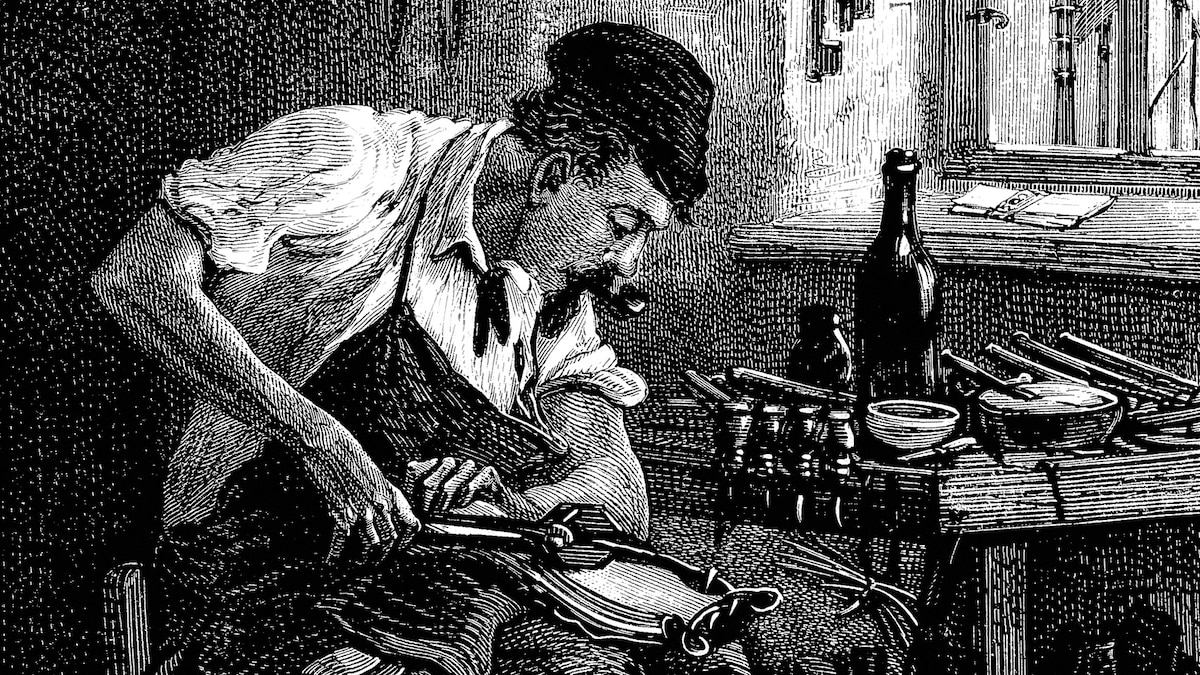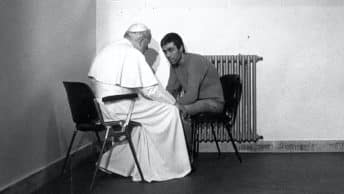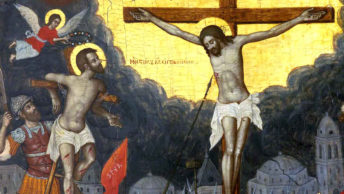Over 100 years ago the great Russian author Leo Tolstoy wrote a much-loved story called Where Love Is, God Is . The hero of the story is an old cobbler, or shoemaker, who one night dreamt that Jesus told him, “Tomorrow I will visit you in your shop.” Upon awakening, the cobbler began his day with great excitement and anticipation. “The Lord Jesus is coming to see me!” he thought, and he could hardly contain himself for sheer joy. Throughout the day the cobbler was very busy, but not in the way he expected: Jesus didn’t come to the shop, but many other people did— some customers, and other persons seeking his assistance. For instance, a freezing beggar with a rattling cough came in to get out of the cold. Feeling compassion for him, the cobbler had him sit by the fire, and gave him something to eat. Later a poorly-clad, half-frozen young woman, carrying a crying baby, entered the shop. She was in desperate need of food and clothing, and the cobbler felt sorry for her; after warming some milk for the baby and giving the woman something to eat, he found some clothes that had belonged to his deceased wife, and gave them to the freezing young mother. Still later the old woman known to everyone as “Apple Annie” because of the apples she sold stopped by; she was very upset because one of the boys in the neighborhood had stolen two of her apples when her back was turned. The cobbler happened to know the boy, so he went and found him and brought him back to the shop, where he made him apologize and be reconciled to the woman. The cobbler’s day was very busy and fulfilling , but it hadn’t gone as he expected, and he was a little disappointed. That evening, after a simple dinner, he was very tired, and fell asleep in his chair with the thought, “It must have been only a dream that Jesus was going to visit me.” Then he heard the same Voice as the night before, and It said: “I was hungry and you fed Me, I was thirsty and you gave Me drink, I was sick and you cared for Me” (Jack McArdle, 150 Stories for Preachers and Teachers, #136; also Chicken Soup for the Christian Soul, p. 94). As Tolstoy understood, it is indeed the case that “where love is, God is” — and we are supposed to experience, and bear witness, to this truth in our own lives. The more we’re willing to recognize Jesus in the people around us, the more our hearts will be filled with happiness, purpose, and peace.
On the Solemnity of Christ the King, Jesus reveals Himself not only as the all-powerful Lord of all creation, but also as a gentle and compassionate Savior. The Book of the Prophet Ezekiel (34:11-12, 15-17) describes God as a tender and loving Shepherd Who personally cares for those who suffer, while also imposing strict judgment upon those who harm or abuse others. Jesus uses this same image in His parable in the Gospel of Matthew (25:31-46), but He adds an all-important feature: He takes personally whatever we do for, or to, other people. We will be judged, He warns, on whether or not we have shown respect and compassion toward His presence in the persons in need all around us. St. Paul (1 Cor 15:20-26, 28) speaks of how, when history is finally completed, God will be all in all— meaning there will be, throughout all creation, a perfect union of love and peace. If we wish to share in this wonderful unity of life and grace, we must begin here and now— especially by responding to the needs and sufferings of others as if they were our own. Once there was an elderly woman in a nursing home who spent all day in a rocking chair; in her loneliness and depression, she had nothing better to do— and because no one ever visited her, she never spoke, and showed no interest in anything. A wise and compassionate nurse would go in her room from time to time— but not to check on her medications or try to engage her in conversation; she simply sat in another rocking chair and rocked with her in silence. This went on for months, and finally the old woman turned to the nurse and, speaking for the first time in over a year, said, “Thank you for taking the time to rock with me” (Rev. John G. Hillier, Anecdotes & Scripture Notes for All Occasions, p. 27). Many times our acts of compassion may seem as apparently simple and unimportant as being with someone in a rocking chair— but such acts of kindness are profoundly important in God’s eyes. At times it may seem our efforts to do good are making no noticeable difference at all — but our patient willingness to be there for someone else may touch that person’s heart, and will assuredly be recognized and acknowledged by God. Sometimes virtually no one will know of our good deeds— but God always sees and appreciates them, and will certainly bless us for them.
No good deed, if performed as an expression of love and compassion, is ever wasted; no act of love, no matter how small or routine, ever fails to have an effect. A friendly smile, a word of w elcome, a simple act of kindness, a genuine expression of support, and a willingness to be of assistance whenever and however we can, are all ways of sharing God’s love and of making this world a better place — and the more we exercise such compassion here o n earth, the more we become capable of one day living in Heaven. Jesus wants us to understand that everything is united or tied together: this life and the life to come; compassion for others and our own inner peace; and love of neighbor and love of God. Recognizing this great unity, and living accordingly, helps make sense of life and gives it a higher meaning. This should be especially true for us as Catholics — for after we receive the Body of Christ at Mass, we are supposed to go out and minister to all the people in need who form the Body of Christ in the world. Receiving Jesus in the Eucharist is meant to equip and empower us to serve Jesus in those who suffer.
If Christ is truly our King, we will try to recognize and respond to His presence in the people around us— especially in their vulnerability and need. As Our Lord tells us, at the end of the world He will return in immense and unmistakable power, majesty, and glory, escorted by all the angels of Heaven. In the meantime, however, He appears to us each day, as it were, in disguise, giving us the opportunity to serve Him by our acts of love and compassion. Let us always strive to be caring, watchful, and alert — for this is the only true way to please God, serve our neighbor, and prepare ourselves for eternity.








